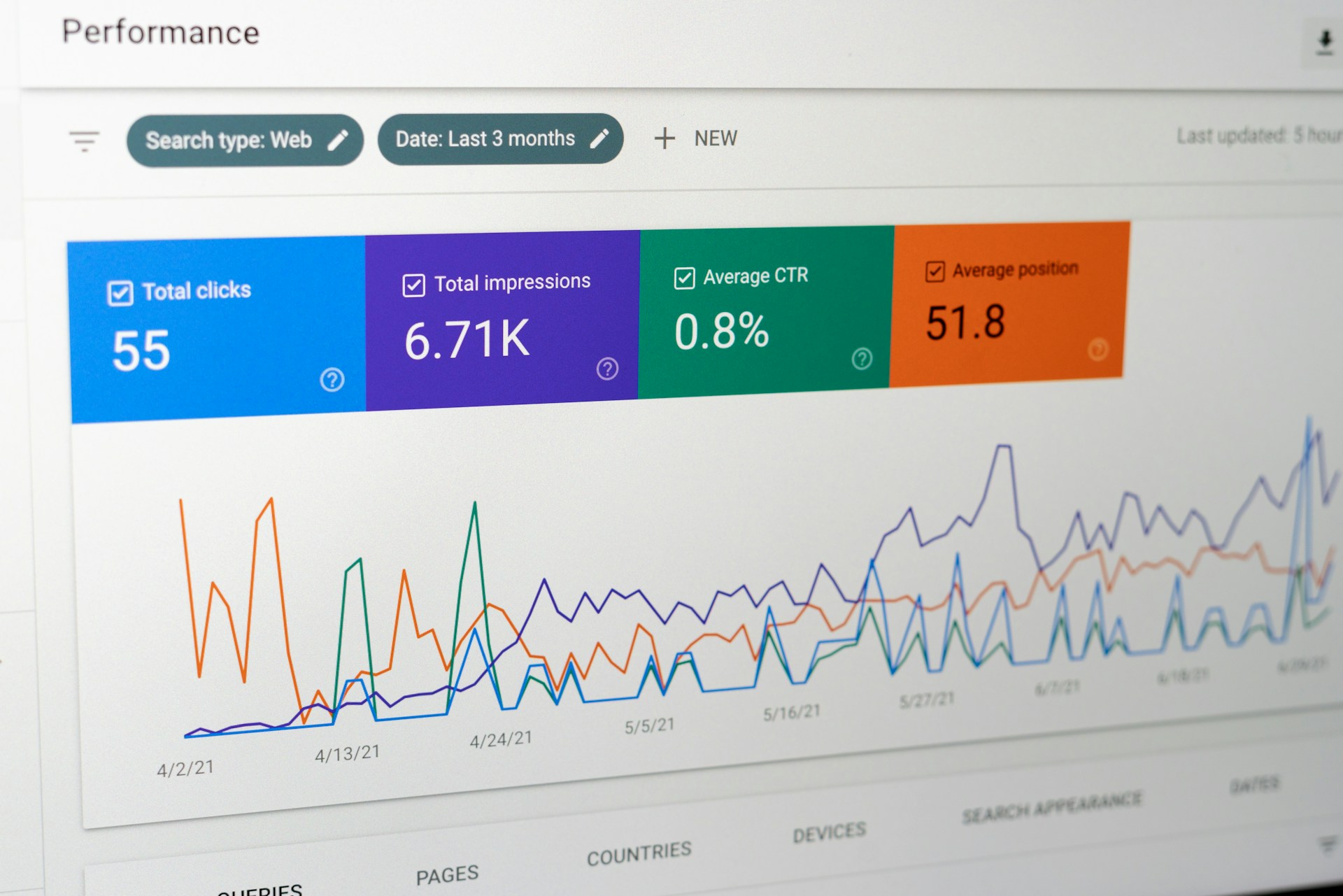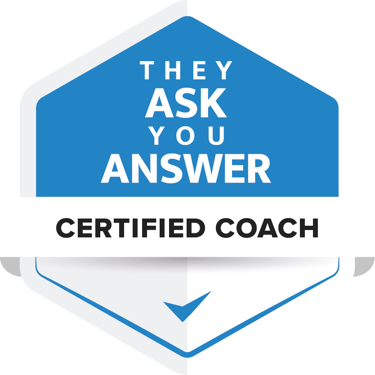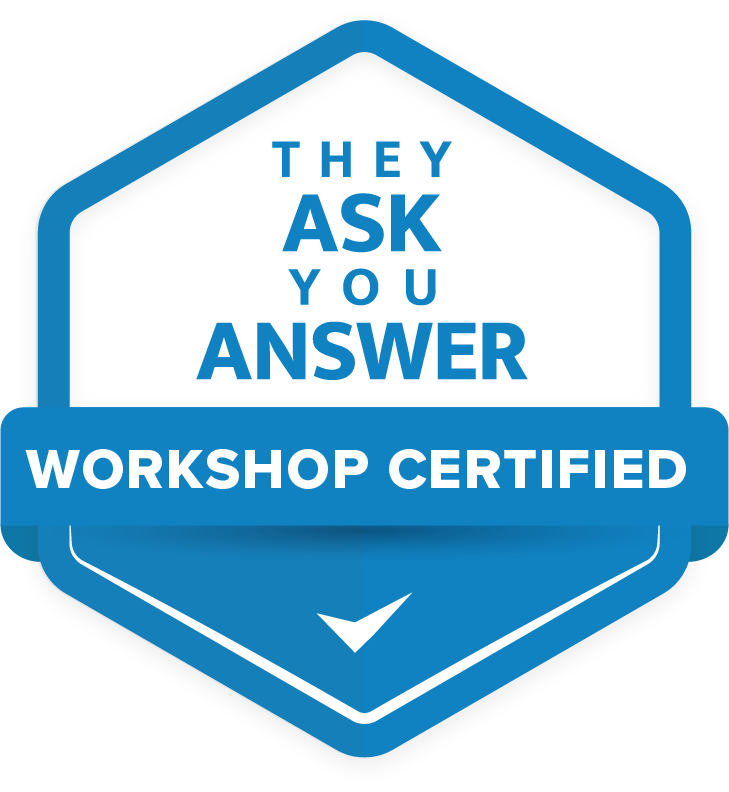Why does They Ask, You Answer actually produce results?

Many companies, after learning about They Ask, You Answer, want to get started right away.
It is true that thousands of companies around the world have used this method to transform their business. But there is more to this than tactics. It's not just about the what or the how. To quote Simon Sinek, it's important to start with the why.
If you've heard Daan Schmidt speak or read Marcus Sheridan's book, you already know that They Ask, You Answer produces results. But why? Why is They Ask, You Answer such a successful formula in today's marketplace?
How can you be sure that They Ask, You Answer really delivers the results you've seen?
These are all legitimate questions that many businesses have.
Ultimately, They Ask, You Answer is about the constant drive to do your best, be more engaged and become the most trusted voice in your market. It's about being better aligned with buyers. For these reasons, this method can be implemented at so many companies in so many different industries.
In this article, we answer the following questions:
To be clear, this is not a training course for implementing They Ask, You Answer. For that, you can take our TAYA Mastery program.
Instead, here's the "why" behind They Ask, You Answer. And this is a good place to start.
What is They Ask, You Answer anyway?
They Ask, You Answer is a revolutionary approach to inbound sales, content marketing and the digital consumer developed by Marcus Sheridan - and a book by the same name.
Often people think They Ask, You Answer is just another book about inbound marketing, when it is actually much broader than that. They Ask, You Answer is a philosophy and a framework. It's a proven, transformative system that enabled Marcus to save his pool company and has since saved thousands of businesses around the world.
At the heart of They Ask, You Answer is a simple premise: If a customer has a question, you should answer it. When companies focus on answering consumers' questions honestly, they help those buyers make better buying decisions.
This means facing the tough questions and being honest about what people want to know. This way, the most appropriate buyers will find you and the others will filter themselves out.
We like to think of They Ask, You Answer as a method for business improvement, which is why it works so well. Let's explore it together.
We are dealing with a different kind of consumer
The landscape in which businesses operate is changing. It is without a doubt very different than it was 10-15 years ago. People don't want to make a bad buying decision, and the beauty of the Internet is that they don't have to.
We know that 81% of people today begin their buying journey with a Web search. And that percentage is only likely to increase. Buyers are getting to know themselves. They feel better qualified, better educated and more confident. This leads them to feel better about the decisions they make.
On average, 70% of a purchase decision is made before a prospect talks to a company. By the time he does, he has already established a relationship with that brand through his research. If the company has done well, that buyer trusts that company - even before they have spoken to each other.
As Marcus Sheridan says, "We are all in the business of trust."
If you can build trust with your customers, they will spend more with you, stay with you longer and refer you more often.
Ultimately, the buyer has changed and this should affect how we market.
How They Ask, You Answer connects with this new buyer
Once we understand this change in buyer behavior, it is easier to see why They Ask, You Answer works and why it creates more leads and sales.
Ultimately, They Ask, You Answer works by capitalizing on two fundamental behavioral changes by:
Connecting to how buyers want to buy
We've already talked about how buyer behavior has changed. They Ask, You Answer works because this method helps consumers find answers to their questions without having to talk to anyone.
This is done by creating content around what Marcus calls the 'Big 5′, topics about which every buyer wants to know something, regardless of what he or she is buying:
Big 5 content often outperforms other content, regardless of industry, because it focuses on what customers are already asking and looking for. When prospects can find information about what something costs, how it compares to other options and other important questions, they become more informed consumers.
If you provide this information, buy-ready prospects will come to your site, resulting in more traffic, leads and sales.
Following the principles of They Ask, You Answer puts customers in control, allowing them to find and consume content on demand.
It helps customers:
As companies, we can spread marketing messages all day long, but people are less receptive than ever to salesy content in which companies promote themselves. The world is noisy and full of sales pitches. They Ask, You Answer content distinguishes itself by helping and educating prospects, not by selling.
Build trust with prospects and customers
Only 34% of consumers say they trust the brands they buy from. Yet buyers cite trust as an important factor in making a purchase decision.
They Ask, You Answer addresses this need for trust by answering the "tough questions.
Let's use the price/cost component of the Big 5 as an example to illustrate this. Marcus uses the following example in his book:
Imagine walking into a store and asking about the price of an item, but the sales associate refuses to tell you. Not only is that rude, it immediately makes you suspicious. You think, what are they trying to hide?
In this situation, you would probably leave and go somewhere where they are honest about the price.
Honesty and transparency create trust. If a company is not honest about the price they charge, you are suddenly suspicious of what else they are not telling you. This is exactly the same with online businesses.
That's why They Ask, You Answer is so powerful. It requires you to be transparent in the information you give customers. If they want to know about price, you tell them about price. If they want to know how you compare to the competition, you tell them candidly and without bias. If they want to know about the shortcomings of your service, you tell them that.
Answering your customers' tough questions shows that you want to be open, honest and sincere.
You show that you are not trying to take money from anyone. You want to make sure that whoever buys from you is getting real value. The consumer notices this and trusts you.
When a consumer trusts you, the benefits are enormous.
He is more likely to buy from you again, is more loyal to your brand, advocates for your brand and, in some cases, even defends your brand and reputation.
This is not a sales or marketing philosophy
To understand why They Ask, You Answer works, it is important to understand that They Ask, You Answer is not a sales or marketing philosophy. It is a business improvement process that responds to how buyer behavior has changed.
Ultimately, They Ask, You Answer is not about making noise for noise's sake. It's about giving consumers what they want from a brand: honesty and transparency. That's why it works.
The main goal is to help consumers make a decision in a way that suits them, in a way that puts them in control. They Ask, You Answer puts your customers at the center of what you do. It taps directly into what matters most to them.
They Ask, You Answer provides tactics and a proven framework, but it is more useful to think of it as an ongoing process of business improvement. Implementation takes at least eighteen months and eventually They Ask, You Answer becomes an integral part of your business, guiding your marketing, sales and service teams. And that's not all. They Ask, You Answer changes your approach to leadership, HR and more.
This is why They Ask, You Answer gets you results.
As Simon Sinek says, you can always improve; you can always challenge yourself to be better - but you can never assume you are the best. That's the core of the success of They Ask, You Answer.
Related articles
October 3, 2024
-
Reading time: +/- 6 min








